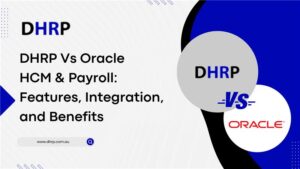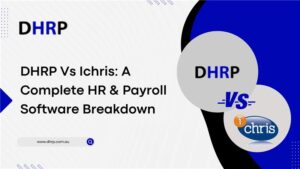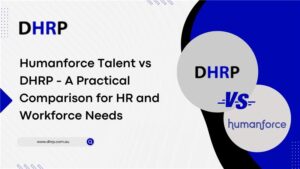Nobody likes to see the project fail. Whispers about lost costs and resources haunt you. However, these failures can help future consultants learn lessons. Most often, clients are unable to manage and monitor the process, ruining their own decision-making, risk, and issue management.
Moreover, if the client is dealing on a global level, the project managers need the right direction. Lack of experience, mismanagement of time, and lack of communication can damage the whole project. So, while working with many ERP consultants, we have learned some amazing lessons.
We are going to share our essential insights with you. Read out and see how it can help.
Where Should You Start Your ERP Project?
Jumping right into it as if you are here, you are probably aware of what an ERP consultant is. You are already working in this role but need some help. And here we are.
So, when people are planning on ERP implementation, ERP consulting services providers most often only have significant features in mind. But is it all your business needs? Have you thought about the long process? Your business will eventually grow and need to be scalable for modern business needs.
So, does your ERP implementation plan justify all you need? Effective procedures enable agility and responsiveness, increasing competitiveness and improving service for international customers.
Existing processes are often rigid and fail to fit the firm’s needs. Even when well-established and cost-effective procedures are in place, they must frequently be updated to meet changing needs or augmented with new capabilities such as mobile access, alerts, and business information. As a result, those procedures must always be central to your implementation strategy.
7 Things You Should Know As An ERP Consultant:
When you are all set to implement the ERP solution as an ERP specialist, you need to learn from others and your past mistakes. So, here are a few lessons that we know are important for any consultant in your position.
ERP systems are complex, so thinking of them as everyone’s cup of tea might be a mistake. So, this is where you need experience. Anyone with real-world experience in various industries can offer you the foresight to the possible challenges. When you prepare, your conquering game is strongest. So, look for an experienced team at your side.
Consultants may or may not have any say in the team-gathering process, but as a business manager, you want help. Make sure that your ERP provider is offering you trained staff for the process. If you have foreign clients and suppliers, your partners should be fluent in many languages and currencies to help you streamline your implementation.
Finally, ensure that the project management software used by a firm is compliant with your internal planning, scheduling, and tracking system.
Do not give up just because somebody says, “You don’t know everything.” One can always learn. ERP Software is not to be learned overnight. So, always spend time studying your previous implementations. Take notes on what was suitable for the past years but needs to be changed due to modern business processes.
Training, conferences, and trends can keep you updated. You can also discuss your cases with other fellow consultants. This gives you better exposure, and your learning graph rises.
ERP implementations can be tough. Deadlines might change, and unanticipated complications can develop. Adaptability and excellent time management are critical for keeping projects on schedule.
Estimate the time required for each task. Do this by first understanding the task and the effort involved and then assigning the amount of “work hours” needed. It can be a number of hours, but it must be correct. Add up the work hours for each project phase and assign the task to the person in charge of completing it.
This can be a difficult undertaking, which is why it is critical to have an implementation partner or ERP consulting firm that is experienced with software solutions. If you do this step correctly, you will be able to assess your timeframe precisely, determine whether you require assistance from outside your present team, and limit scope creep.
A good consultant means you value time and are good at scheduling your time. So, an expert consultant will save you both time and money. Besides, if you break down the processes, you can plan the proper time for each phase, including the risks it might encounter. Always remember to be realistic. Learn from the previous timing mistakes.
Have you tabulated work hours calculated. Involve your team in the discussion of time management. This can help you set a more realistic timeline. In case your estimation goes down the drain, do the following:
- Reduce the scope
- Extend the date to a realistic one
- Add more internal and external resources (work hours available)
- Break the project up into phases
When you are on it, keep in mind that this ERP system is not just about the tool. Successful implementation is possible through user adoption. So, have spare time for the training. Understand their concerns and needs. Communicate and never think that a siloed system will work in your favor. The time for silos organization is long gone.
ERP installation necessitates devoted resources, both in terms of time and skill. Underestimating these requirements might result in delays, financial overruns, and lower quality.
These early years are critical for establishing a solid foundation. Actively seek out opportunities to learn from experienced consultants, ask questions, and take on hard assignments to improve your skill set.
Conduct a complete resource assessment before beginning the project. Allow enough time and staff, including internal and external expertise, to ensure a successful implementation.
Yes, technical expertise is important, but as a consultant, you also need to be able to communicate effectively. Your communication gaps mean gaps in your ERP implementation, too.
They will never build trust and will always hinder the successful implementation of ERP for the target company. Understand the team psychology and mindset of your users before you step in.
Bottom Line
In the journey of digital transformation, companies look at the consultants. They are either clueless or think they know too much. Now, they need to manage it with experience. Experience and taking the process in the right direction are all in the hands of the best ERP implementation consultant.
Train yourself and be ready for unforeseen challenges. If you think your company needs consultants, DHRP has a professional team of consultants with years of experience. Just reach out, and let’s talk.




































































































